Saved this for my interview
7 Psychological Tricks That Might Actually Work in Real Life

Small psychological techniques can create a big impact. Backed by science, these strategies improve everyday life, helping in conversations, decision-making, and building stronger relationships. Explore 7 proven psychological tricks to make life smarter, smoother, and more successful.
1. Make a pause before making a decision.
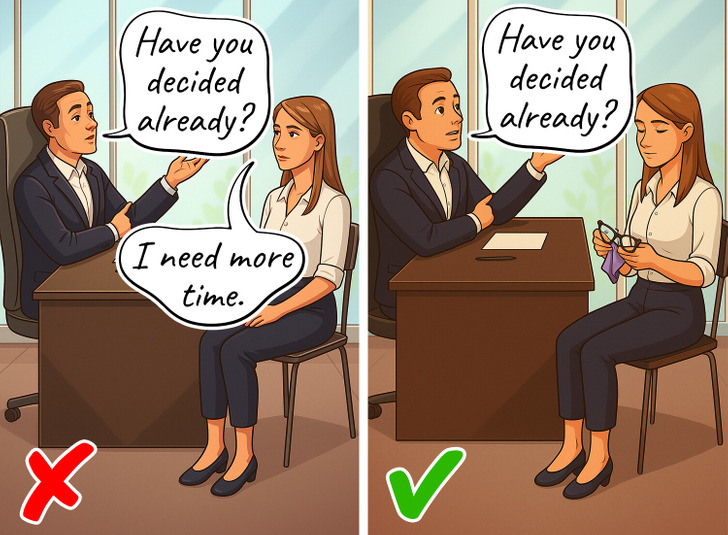
Taking a moment to really notice what’s going on can make a huge difference in the choices we make. Right between what happens to us and how we react, there’s a tiny space filled with thoughts and feelings. If we rush, those thoughts and emotions can steer us into poor, impulsive decisions. That’s why the “Pause, Notice, Choose” approach—let’s call it P-N-C—matters.
Most decisions athletes make in the heat of competition happen in a blink, but even then, there’s a split second to pause, take it in, and act. Quarterbacks, for example, don’t just throw the ball right away. They take a moment (pause) to process what they see, hear, and feel (notice) before deciding where the ball goes (choose). Baseball hitters do the same, milliseconds to decide if and how to swing at a pitch.
2. The “barrier drop” technique

One subtle trick is called the “barrier drop” technique. When you’re holding a drink between you and someone, it can act as a small psychological barrier. Lowering or shifting that cup to the side as you talk signals openness and makes you appear more approachable.
It’s a tiny move, but it tells the other person’s subconscious, “I’m not hiding, I’m open to you.” If you want to turn it up a notch, cradle the glass loosely instead of gripping it tightly; this gives off relaxed, confident vibes, which are naturally attractive.
You can also use the cup as a prop to create intrigue. For example, take slow, deliberate sips while holding eye contact for a beat longer than usual. The pause draws attention to your face and makes the interaction feel more intentional.
This works especially well in a social setting because it adds rhythm to the exchange. People tend to remember those small, charged silences, and the cup becomes part of your body language narrative.
3. The Ben Franklin effect

How it works: People like you more after they’ve done you a favor, not the other way around.
Why it works: They subconsciously justify the favor by assuming they must like you.
Real-life use: Ask to borrow something small (a pen, charger, etc.), especially from someone you’re trying to build a connection with.
4. Distract yourself and relax.

Here’s a fun little mind game for when someone’s trying to get under your skin. Imagine you’re both on opposite sides of a giant fish tank—one of those with glass so thick you couldn’t hear a thing even if you tried.
You can see their lips moving, but it’s just silent, blurry nonsense, like watching a bad lip-sync video. You’re safe in your quiet little bubble, and their words can’t touch you.
5. Use “because” for instant influence.

Picture this: it’s the late 1970s. No laptops, no home printers. If you wanted a document copied, you had to trek to the campus copy machine, and odds are, there was a line. A long one.
That’s where Harvard researcher Ellen Langer decided to run a little social experiment. She had people walk up to that line and try to cut in. But here’s the twist; they all asked in slightly different ways.
Plain ask: “Excuse me, I have 5 pages. May I use the copier?”
Because (weak reason): “Excuse me, I have 5 pages. May I use the copier, because I have to make copies?”
Because (strong reason): “Excuse me, I have 5 pages. May I use the copier, because I’m in a rush?”
Here’s what happened:
- Plain ask: 60% of people said yes.
- Because + weak reason: 93% said yes.
- Because + strong reason: 94% said yes.
See the magic? It wasn’t just what they said; it was that little word because. Even when the reason was painfully obvious (“because I have to make copies,” well, duh), people still agreed way more often.
Why? Our brains love shortcuts. When we hear because, we expect a valid reason to follow, and we tend to go along without thinking too hard, especially when the request is small.
6. The art of being deliciously vague

Sometimes, the best answer... is no real answer at all. When you keep things ambiguous, just enough to be unclear, you shut the door on follow-up questions without ever being rude.
It’s perfect for those moments when you:
- Don’t actually want to answer.
- Need more time to think.
- Or simply enjoy keeping a little air of mystery.
By leaving things undefined, you’re not lying (which is messy and tends to unravel later). Instead, you’re wrapping your reply in a light fog, just enough so the other person realizes they’re not getting a clear answer... and stops digging. Sometimes, the unknown is way more powerful than the truth.
7. The compliment detour

Most people light up when they get a genuine compliment, especially if it’s about something close to their heart. And what’s closer than family? So, when someone hits you with that classic loaded question, “When are you going to have kids?” you don’t have to squirm or get defensive. Instead, flip the script.
Smile, and start talking about their kids. Tell them how sweet, smart, or funny their little ones are. Point out how well-behaved they seem, or how they’ve clearly been raised with so much love. You can even go all in and praise the parenting skills that made it happen.
Not only does this steer the conversation away from your personal life, but it also leaves the other person feeling great about themselves. And just like that, you’ve dodged the question and made someone’s day.
This article is intended for entertainment purposes only. We make no representations or warranties regarding the completeness, accuracy, reliability, or safety of the content provided. Any actions taken based on the information in this article are strictly at the reader’s own risk. We assume no responsibility or liability for any loss, damage, or consequences arising from the use of this content. Readers are advised to exercise their own judgment, take appropriate precautions, and seek professional guidance if attempting to replicate any part of the content.
Comments
Related Reads
14 Simple Items Flight Attendants Swear By That We Often Forget to Pack

I Saved for My Dad’s Surgery — but My Mom Took It, Her Reason Is Unforgivable

12 Moments That Teach Us to Stay Kind, Even When Life Becomes Heavy
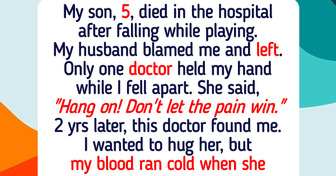
12 Moments Where Quiet Kindness Turned Strangers Into Family
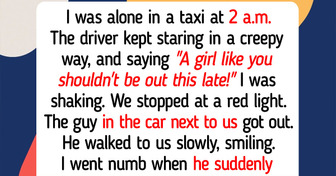
15 Stories That Teach Us to Choose Kindness, Even When the World Goes Blind
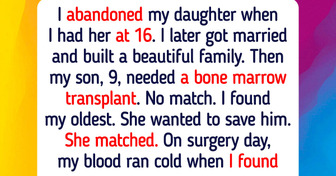
15 Moments That Inspire Us to Be Kind, Even When the World Turns Against Us
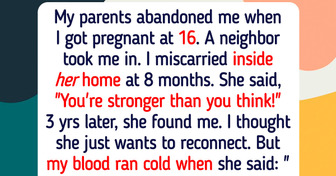
15 Moments That Show Kindness Is Quiet but Changes Everything

12 Life Moments Where Quiet Kindness Played the Main Role

I Funded My Wife’s Luxury Demands—She Made Me Regret Every Penny

16 Stories That Prove Kindness Still Wins in Our Broken World
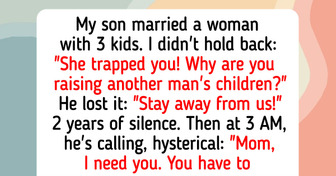
I Refuse to Forgive My Wife for What She Did to My Son

I Refused to Follow My Boss’s Dress Code—HR Had to Step In
